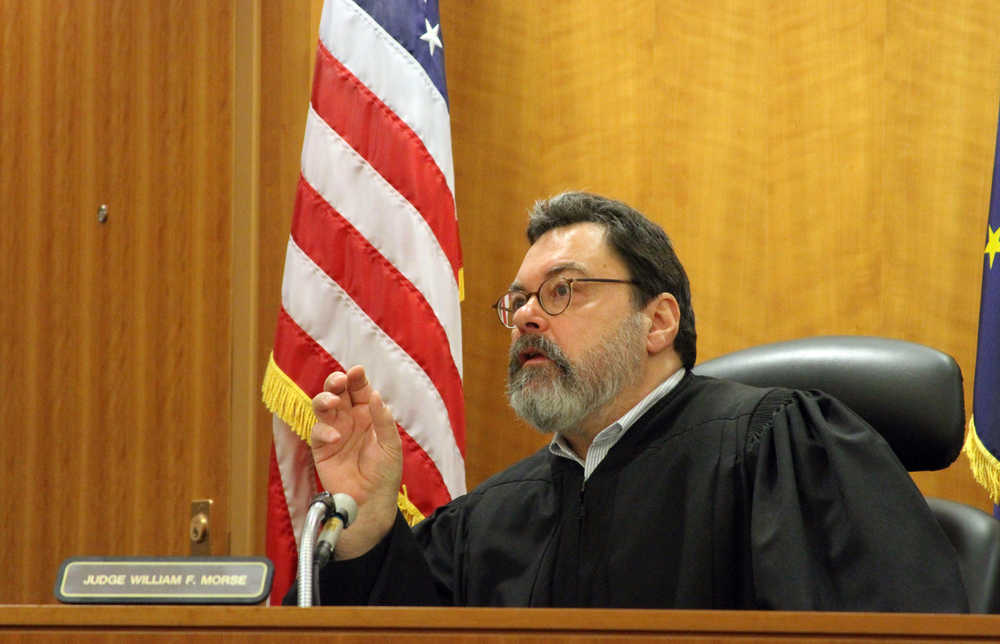JUNEAU — A state court judge ruled Thursday that Gov. Bill Walker had the authority to reduce this year’s Alaska Permanent Fund dividend, siding with the state in the politically charged case.
Superior Court Judge William Morse’s decision followed arguments presented by both sides in Anchorage on Thursday morning.
Morse said he expected the issue ultimately to be decided by the Alaska Supreme Court. State Sen. Bill Wielechowski, one of the plaintiffs in the case, said he planned to appeal.
The lawsuit, brought by the Anchorage Democrat and two former lawmakers, argued the Alaska Permanent Fund Corp. was obligated by law to make available nearly $1.4 billion from the fund’s earnings reserve for dividends, in spite of a Walker veto reducing that amount.
The veto reduced the dividend to $1,022, roughly half of what it otherwise would have been. The plaintiffs wanted the rest restored.
Attorneys for the state had pushed back on the argument that dividend payments are supposed to be automatic, saying that would remove control of spending state money from lawmakers and eliminate the governor’s ability to limit spending. They said Walker properly exercised his veto authority.
Morse frequently interrupted and picked at Wielechowski’s arguments, at one point, incredulously stating: “I mean, come on. You can’t seriously say that.”
In a ruling issued from the bench, Morse said the governor has tremendous power over spending in Alaska, noting it takes three-fourths of the Legislature to override a veto on a spending item. If there was any intent to eliminate or change a governor’s role in spending permanent fund earnings that would have been expressed, he said. But it wasn’t, he said.
Dividends come from the earnings of the permanent fund, Alaska’s oil wealth nest-egg, and are annually paid to most Alaskans. The fund’s principal is constitutionally protected.
Walker has defended his decision to cut this year’s dividend as necessary as the state struggles with a multibillion-dollar deficit spurred by chronically low oil prices. He sees use of permanent fund earnings as critical to helping fill the gap.
But the use of permanent fund earnings — and any talk of capping the dividend — remains a politically thorny issue.
One Republican senator, Mike Dunleavy of Dunleavy, said last month that he intended to introduce legislation to restore the portion of the dividend vetoed by Walker.
After the court hearing, Wielechowski said the case was always expected to go to the Supreme Court. “We think the legislative history is clear, that it was the intent to allow for dedication of funds to do a dividend,” he said.
Attorney General Jahna Lindemuth said the state was confident in the advice it had given the governor and was pleased with Morse’s decision. “We look forward to seeing what the Supreme Court does with this case,” she said.

